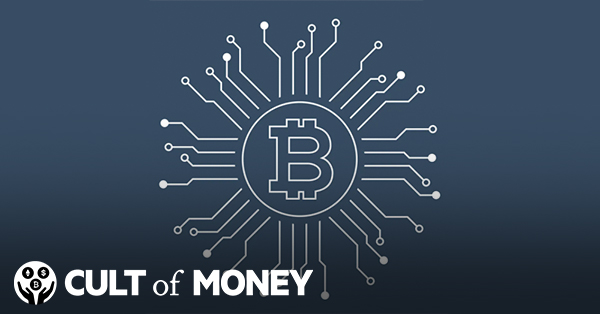Bitcoin is a digital currency that revolutionized the way the world looks at digital money.
The features of the Bitcoin network pioneered a method for tracking digital assets using a technology called a blockchain.
In addition to acting as an online currency, many cryptocurrency enthusiasts look at Bitcoin as an investment. And it has turned some investors into crypto millionaires seemingly overnight.
Could the same thing happen to you? Keep reading to learn: What is Bitcoin and how does it work?
What Is Bitcoin?
Bitcoin is a digital asset that was introduced in 2009. Bitcoin relies on a triple entry bookkeeping system that ensures consensus about who owns which assets.
Every Bitcoin ever created is tracked in a large database, or ledger, known as the Bitcoin blockchain. There's a maximum of 21 million bitcoins. Some believe that the scarcity of Bitcoin will drive up demand and value over time.
From the moment a coin is created through a process called mining, each coin is assigned to a semi-anonymous digital wallet. This prevents fraud in the network and promotes trust and security among users. Bitcoin miners can make money, but the hardware and energy costs make it far from profitable for many miners.
Bitcoin is an open system where anyone can participate. You can buy, sell, trade, and hold Bitcoin yourself if you have an internet connection. While there are risks involved, it’s very easy for anyone with basic computer skills to get started with Bitcoin.
How Does Bitcoin Work?
Bitcoin runs using a network of computers worldwide called miners and nodes who do the hard work of tracking every Bitcoin, transaction, and wallet. Anyone can create a new Bitcoin miner or node at any time to participate in the network.
This open ecosystem works without the direct oversight of any specific government or central bank. The entire Bitcoin world is run by its participants.
To best understand how Bitcoin works, here’s an example of a potential Bitcoin transaction. Let’s say you want to send $1,000 in Bitcoin to your uncle to repay a loan. These are the steps that would happen for a successful transfer:
- 1You log into your Bitcoin wallet and enter your secure information to unlock the ability to send. Sending Bitcoin requires both a public wallet address and a private key. You should always keep your private keys 100% confidential.
- 2You enter your uncle’s public Bitcoin wallet address as the send destination for the transaction. You double-check that you copied and pasted this alphanumeric address perfectly, as transactions can’t be reversed or changed once entered.
- 3You click the submit button to broadcast the transaction to the Bitcoin network. Bitcoin miners detect the transaction and include it in the next block. The transaction requires four confirmations from other computers on the network and takes about 40 minutes to complete. Bitcoin miners take a modest fee from the transaction to pay for their running costs.
- 4Your uncle’s Bitcoin wallet updates to reflect receipt of the currency you sent. All Bitcoin miners and nodes download the new block showing that the specific Bitcoin you sent is no longer owned by your wallet and is now owned by your uncle’s wallet.
As you can see, there’s a lot more going on behind the scenes than if you were to hand your uncle a stack of $100 bills. If you just hand your uncle $1,000, only you and your uncle are involved.
But when sending Bitcoin, you create a public transaction that’s tracked by the entire Bitcoin network. This ensures coins can’t be duplicated, sent twice, and enforces strong security for every Bitcoin on the network.
You can view any transaction or wallet using a public Bitcoin blockchain explorer, like this one from Blockstream.info. Every Bitcoin transaction ever, big and small, is publicly accessible on the blockchain.
Bitcoin Safety And Security
Before buying Bitcoin yourself, it’s important to understand the potential safety and security risks of Bitcoin. While it’s an incredibly secure network, your personal Bitcoin is only as secure as your passwords and digital security habits.
To own Bitcoin, you’ll need either an account with a cryptocurrency exchange or brokerage or your own Bitcoin wallet – more on those in the next section. Before opening an account, keep these security tips in mind:
If you follow good online safety habits, you can safely and securely enjoy all Bitcoin has to offer. But a slip-up with passwords, private keys, or addresses can quickly turn into a problem you can’t fix.
How To Buy And Store Bitcoins
If you’re ready to buy your own Bitcoin, you’ll need an account with a Bitcoin exchange or a Bitcoin wallet that works with a decentralized exchange. These are some of the best options for those new to Bitcoin when starting:
Best Bitcoin Exchanges
Best Bitcoin Wallets
Is Bitcoin Right For You?
Now that you know how Bitcoin works, you can make a better decision on whether or not it makes sense for your financial goals.
If you decide to invest in Bitcoin, keep in mind that it’s highly speculative. It could easily go to the moon and double, triple, or 10x in value. But it could also fall to zero very quickly with government action. So don’t invest more than you can afford to lose.
If you understand what Bitcoin is, how Bitcoin works, and the risks of Bitcoin, you’re in a good position to get started. With a funded cryptocurrency account, your first Bitcoin purchase may be just a few clicks away.

Eric Rosenberg is a financial writer, speaker, and consultant based in Ventura, California. He holds an undergraduate finance degree from the University of Colorado and an MBA in finance from the University of Denver. After working as a bank manager and then nearly a decade in corporate finance and accounting, Eric left the corporate world for full-time online self-employment. His work has been featured in online publications including Business Insider, Nerdwallet, Investopedia, The Balance, HuffPo, Investor Junkie, and other fine financial blogs and publications. When away from the computer, he enjoys spending time with his wife and three children, traveling the world, and tinkering with technology. Connect with him and learn more at EricRosenberg.com.

